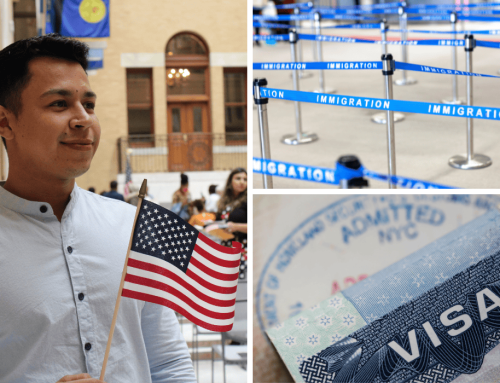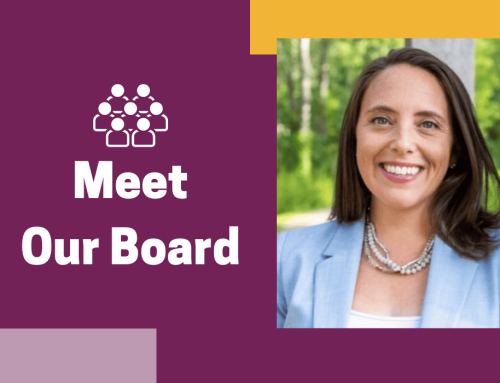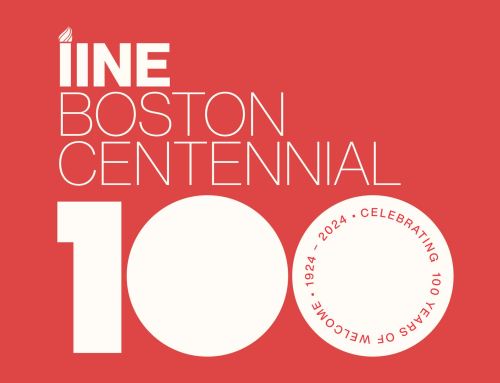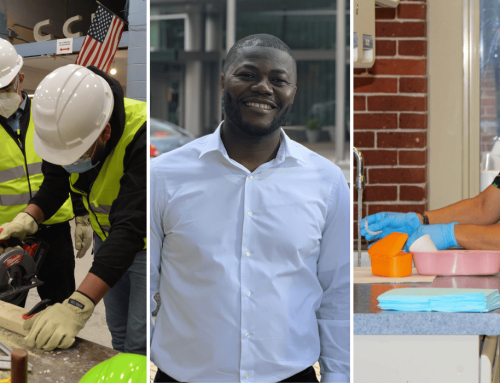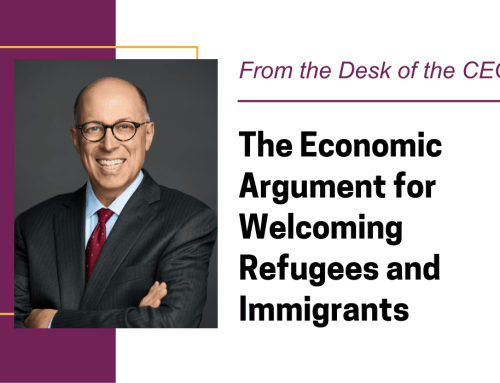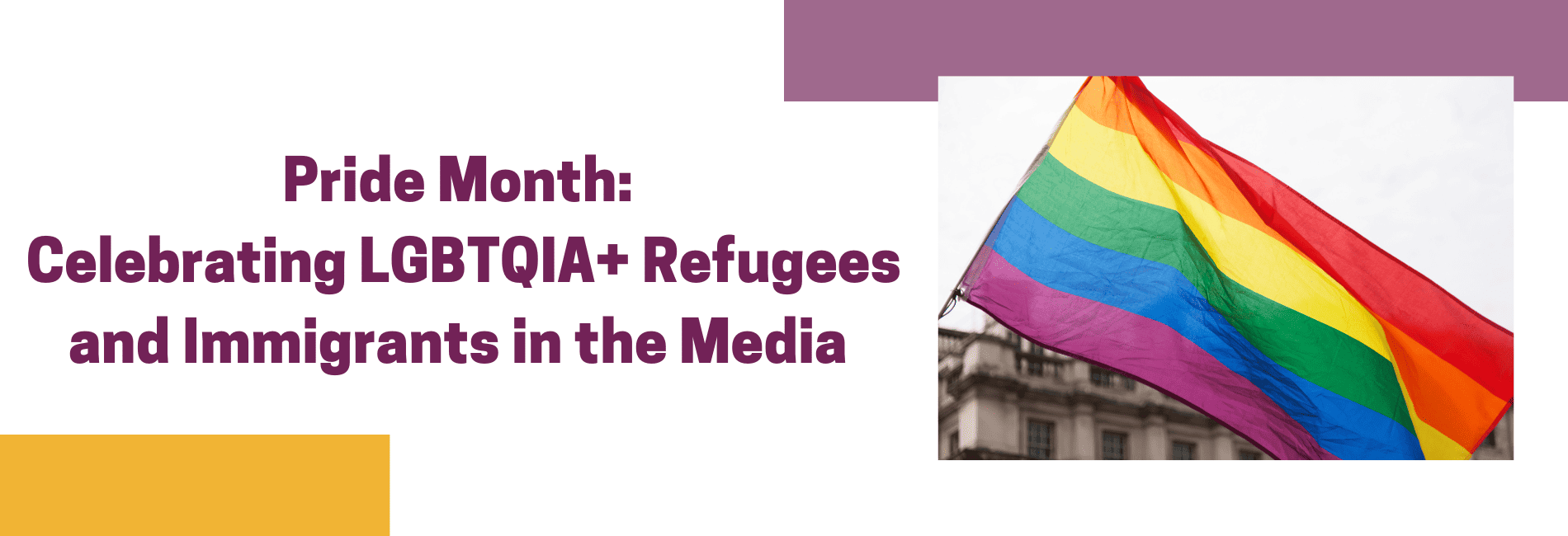
June is Pride Month in the United States, a time to celebrate and affirm the impact of the LGBTQIA+ community on our society. As we honor Pride, the country and many parts of the world experience a disconcerting wave of discrimination against this community. Here at IINE, among our clients are people who fled their homelands because they feared or suffered persecution due to their sexual orientation or gender identity. We proudly provide services to LGBTQIA+ refugees, asylees, humanitarian parolees, and unaccompanied children who would be harmed or imprisoned in their native countries.
During Pride, we look to amplify the voices of refugees and immigrants who belong to the LGBTQIA+ community. Here is a selection of media that highlights their experiences, struggles, and triumphs – and showcases their resilience and contributions.
Documentary: “Unsettled: Seeking Refuge in America”
“Unsettled: Seeking Refuge in America” chronicles the lives of four LGBTQIA+ refugees who left their homes due to fear of persecution and resettled in San Francisco. The documentary follows Junior Mayema, a gender-nonconforming man who fled the Congo; Mari N’Timansieme and Cheyenne Adriano, a lesbian couple who escaped harassment in Angola; and Subhi Nahas, a gay man who escaped from Syria where Islamic terrorists threatened his life. Speaking with WBUR, filmmaker Tom Shepard highlighted the unique obstacles LGBTQIA+ refugees face. “Going back decades, resettlement in the U.S. was always based on family. A family would flee a war-torn country and, if they came to the Bay Area, would immediately be connected to a community center, a mosque, or [with] others from their country. Not that it was easy but there were strong mechanics in place to get families a toehold. If you are a gay Iraqi and you come to the Bay Area, probably the last people you want to see are other Iraqis. That puts LGBTQ [refugees] at much higher risk for depression, isolation [and] PTSD.” Click to learn more about the documentary.
Podcast: Refugees’ Stories
 The 2020 season of the Refugees’ Stories podcast highlights the experiences of migrants who have sought asylum for their sexual or gender identity. In one episode, listeners hear from Kazi, who comes from Bangladesh where homosexuality is illegal. Kazi reflects on the hardships he faced in his home country as a gay man: the deep loneliness; being forced into marriage to a woman; and the inability to lead an authentic life. Fortunately, that all changed when Kazi went to the U.K. to study dentistry. Today, Kazi is an openly gay activist living in London. Click to hear his story.
The 2020 season of the Refugees’ Stories podcast highlights the experiences of migrants who have sought asylum for their sexual or gender identity. In one episode, listeners hear from Kazi, who comes from Bangladesh where homosexuality is illegal. Kazi reflects on the hardships he faced in his home country as a gay man: the deep loneliness; being forced into marriage to a woman; and the inability to lead an authentic life. Fortunately, that all changed when Kazi went to the U.K. to study dentistry. Today, Kazi is an openly gay activist living in London. Click to hear his story.
Book: We Have Always Been Here by Samra Habib
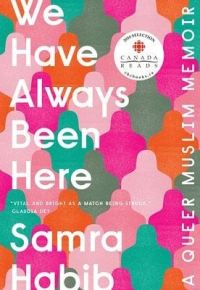 Samra Habib’s memoir We Have Always Been Here delves into the topics of identity, sexuality, and queerness. Samra grew up as an Ahmadi Muslim in Pakistan, where they regularly received threats from Islamic extremists for their religious beliefs. From an early age, they learned how to mask their true identity in the face of danger. When Samra and their family came to Canada as refugees, Samra faced new obstacles: racism, poverty, and an arranged marriage. Grappling with familial expectations and their own desires, Samra searches for a path that will allow them to be their most authentic self: a queer, nonbinary Muslim. Click to learn more about the memoir.
Samra Habib’s memoir We Have Always Been Here delves into the topics of identity, sexuality, and queerness. Samra grew up as an Ahmadi Muslim in Pakistan, where they regularly received threats from Islamic extremists for their religious beliefs. From an early age, they learned how to mask their true identity in the face of danger. When Samra and their family came to Canada as refugees, Samra faced new obstacles: racism, poverty, and an arranged marriage. Grappling with familial expectations and their own desires, Samra searches for a path that will allow them to be their most authentic self: a queer, nonbinary Muslim. Click to learn more about the memoir.
Documentary: “Crossing Over: Stories of Immigration and Identity”
“Crossing Over: Stories of Immigration and Identity” follows three transgender women, who emigrated from Mexico to the U.S. Francis, Brenda, and Abigail’s stories shine a light on the challenges that come with seeking political asylum as transgender women; the transphobia that exists in both Mexico and the U.S.; and the dangers of the sex industry, which all three women enter, needing to find jobs but limited by their undocumented status. The filmmaker, Isabel Castro, was born in Mexico and moved to the U.S. when her family migrated when she was young. “I didn’t live in Mexico for very long. I grew up primarily…in a very conservative Connecticut town where social issues like immigration are sometimes difficult to understand. My motivation in making this film was to put very personal narratives behind this discussion. I wanted people to see it, meet the characters, get invested in these characters and say, ‘You know what? Screw political motivations—these are people I’m invested in and empathize with.’“ Click to watch the documentary.

